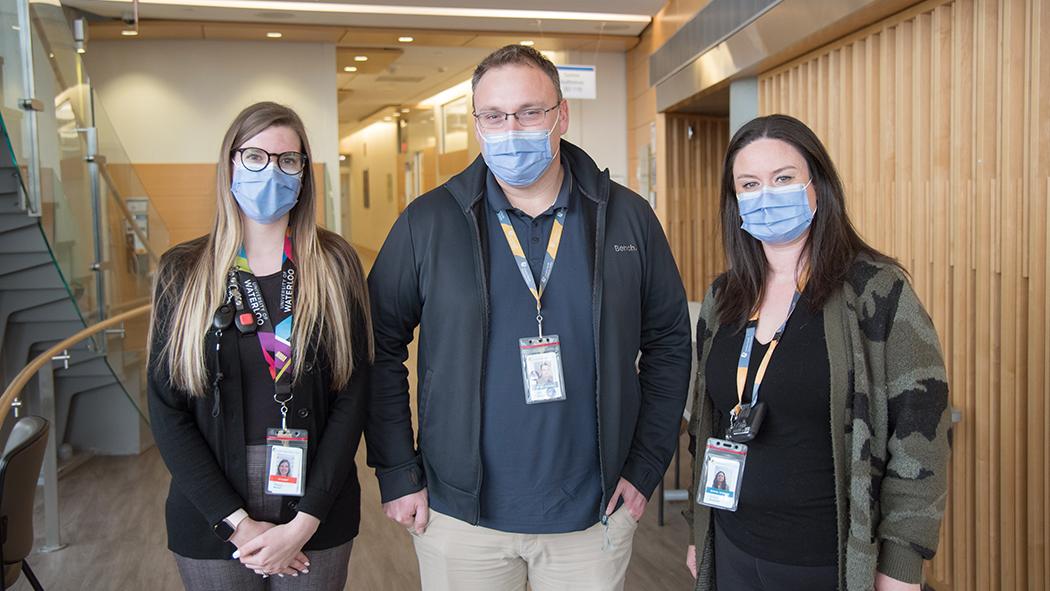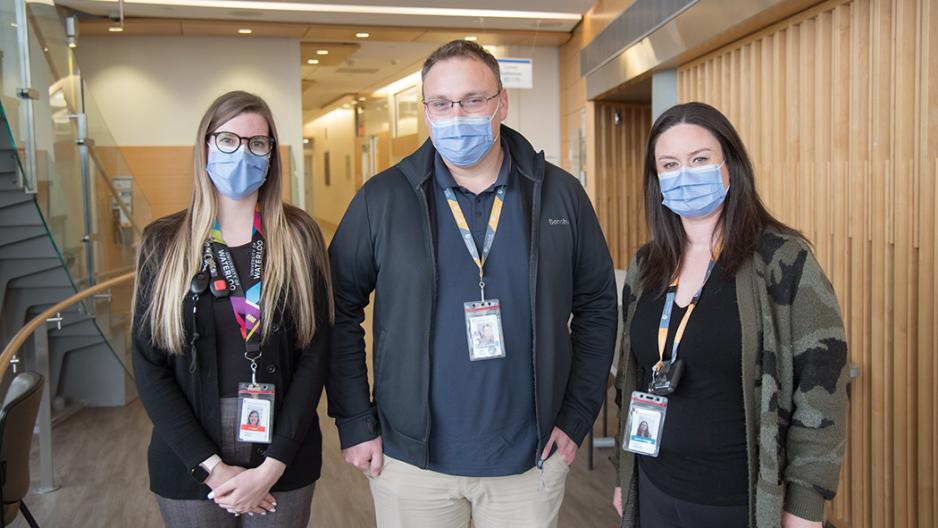
March 9, 2023
Over fiscal year 2022-2023, London Health Sciences Centre’s (LHSC) Social Work program has had 32 MSW (Masters of Social Work) students – the most student learners the program has ever had. From birth to death, LHSC has social workers play an integral role in guiding and counselling our patients and families through their personal healthcare journey. Our education program helps teach future social workers the theoretical and very practical skills of what it means to be a Social Worker in a complex healthcare system like LHSC. This program could not exist without the dedicated support of LHSC’s Social Workers who support the entire education program.
“LHSC has a wide variety of opportunities available for clinical experience,” says Megan Wood, Student, Social Work currently working in inpatient Mental Health. “As a student intern, I have the opportunity to work one-on-one with a supervisor, shadow other social workers and observe other areas outside of my placement to gain a wide breadth of experience. I also get to learn what it means to be a Social Worker to be able to connect with a patient, hear their story, and support them while they are here and find the best supports for them in the community once they leave our walls.”
Supporting student learning
Social Workers also support student interns during their time at LHSC in many different ways. The Observership Program allows students to gain experience in a different area other than their placement through shadowing another social worker. The Peer Consultation Group provides students an opportunity to share a case they are working on and discuss best practices or a specific issue or topic to further facilitate learning for other students.
“I collaborate and connect with five universities from across the country,” says Bill Dixon, Professional Practice Consultant, Social Work. “I help to guide and match students into the right placements, support staff in their work and help to provide a great learning environment. Throughout the organization, staff and physicians make students feel welcome on teams and offer their help to facilitate learning. LHSC has done a great job at making learning apart of the culture.”
Megan Wood comments, “Meeting staff on the unit, they offer their support and guidance and so many are willing to help with our learning during our time in placement. Having a supervisor one-on-one teach us the skills necessary to be a social worker in, not only a hospital environment, but in our specific unit, is invaluable. Every area is so unique and the supervisor is there to teach you the specifics of what you need to know to support patient and family needs.”
Social Work at LHSC
When MSW students start their placement at LHSC, they are oriented to their social work supervisor’s program. They learn and understand more about the interface of the social determinants of health and health care needs of individuals, couples, families and communities. Student interns are able to be a part of assessments, consultation, supportive or therapeutic interventions, discharge planning, and more.
“It has been enriching to learn how to work as part of an interdisciplinary team, and see how each discipline exchanges knowledge and works together,” Megan Wood says.
Aimee Howlett, Social Worker in oncology, was once a student intern at LHSC. “My student experience in surgical care provided me a foundation of experiential learning that I have taken with me and built upon in my career. I had gratitude for the training I received in medical social work, and over the last 10 years, it laid a foundation to work with patients and families who are experiencing a health crisis. With the many students I have had the pleasure to mentor, I provide experiential learning for psychosocial adjustment in these very personal spaces in people’s lives.”
Benefits of students in patient care
Students bring with them the most current knowledge regarding best practices and models of care. While staff continue to update their own skill and knowledge sets, having student learners on the team helps to reinforce any new learnings.
“Students impact my work in a positive way,” explains Aimee Howlett. “As they integrate theory into practice and demonstrate commitment to the social work profession and code of ethics, it affords me an opportunity for reflective practice as I am a lifelong learner. It is fulfilling to move our profession forward through training future practitioners.”
As students learn to navigate the healthcare system, their impact is demonstrated through advocacy, compassion, empathy, inclusion, and equity. “We are building into the future of the profession,” Bill Dixon says. “We’re social workers for a reason – we care for people, patients, staff, learners. Through teaching the new generations of social workers, we are providing needed support for future patients.”
“There’s so much to learn and so many opportunities to support patients and families in different ways as a hospital social worker,” Megan Wood says. “We’re able to see and help with the complex needs of patients and see the treatment process to understand how patients move from the community to the hospital and back to the community. It is such a benefit to be a part of an interdisciplinary team of professionals that all have the same goal of providing excellent patient care.”
